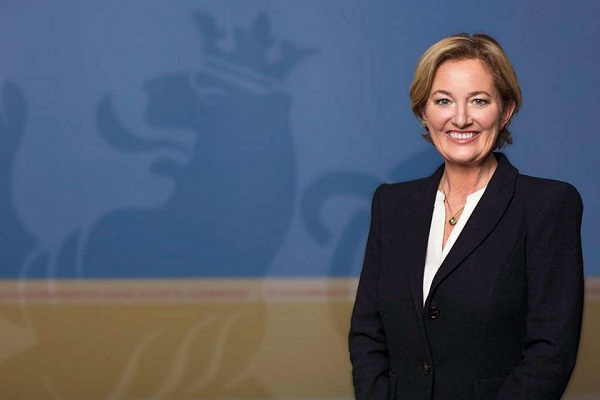 Paulette Lenert, Luxembourg's Minister of Health;
Credit: SIP / Yves Kortum
Paulette Lenert, Luxembourg's Minister of Health;
Credit: SIP / Yves Kortum
On Tuesday 12 October 2021, Luxembourg's Minister of Health, Paulette Lenert, participated in the informal videoconference of ministers of health of the European Union (EU).
The initial discussion of this sixth videoconference under the Slovenian Presidency was dedicated to the EU's potential solutions to increase the accessibility and availability of medicines and to improve preparedness and response to cross-border health threats and crises.
Faced with the unavailability of medicines which has been exacerbated by the pandemic, Minister Paulette Lenert insisted that in addition to structured approaches at national level, a framework for collaboration at European level is necessary. In this context, Luxembourg welcomed the initiatives already taken by the European Commission in collaboration with the European Medicines Agency (EMA) and the national agencies, particularly "the new pharmaceutical strategy for Europe, the Structured Dialogue, as well as the proposed regulation on the extended mandate of the EMA which define certain strategic axes allowing the development of specific instruments to effectively address shortages".
EU health ministers also had an exchange of views on the creation of a European Health Emergency Preparedness and Response Authority (HERA) as an internal structure of the European Commission.
Like other delegations, Luxembourg's Health Minister said she was “surprised at the announcement that HERA would be set up as a service of the Commission, and not as an independent agency as the Commission had initially indicated" and insisted that to ensure optimal functioning of HERA, it would be in the interest of the EU "to install HERA at the Directorate C of DG SANTE in Luxembourg, in order to benefit fully of the expertise and experience of DG SANTE in Luxembourg as well as the digital and eHealth ecosystem existing in the Grand Duchy".
During the COVID-19-related session, Minister Paulette Lenert shared the progress made by the vaccination campaign in Luxembourg while insisting that now is not the time for complacency. She thus informed her colleagues of the strengthening of the CovidCheck system in the Grand Duchy, emphasising the various measures put in place “in order to facilitate access to vaccines as much as possible", namely the "Impf-Bus", mobile vaccination teams, walk-in vaccination centres, patients being able to choose their vaccine, targeted campaigns for vulnerable, undocumented and homeless people and vaccination by general practitioners and in schools.
The EU health ministers all agreed on the need to speed up vaccine-sharing with third countries in order to reach the European target of 250 million doses by the end of the year.








